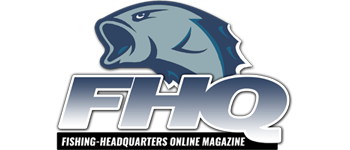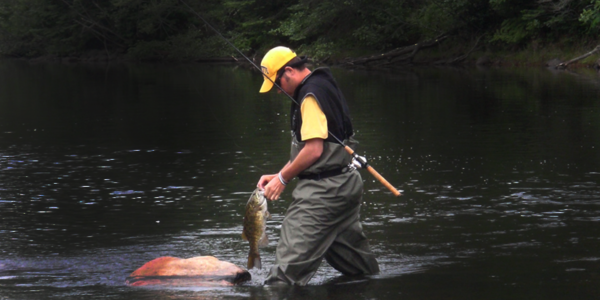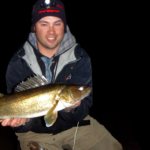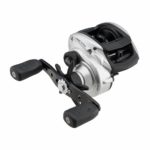Last month, my friend and old Fishing-Headquarters Online Magazine colleague and contributor, Jim Gronaw, wrote an insightful column pondering whether Facebook is ruining fishing. You can read it here. Though the online super-site is an integral tool for networking, information gathering and education, it can be negative on fisheries. The disheartening realities of Facebook far outweigh the positives in this narrative from Jim. I think many of us can agree with Jim, he makes lots of good points. Fishing isn’t the same as it used to be. Lots of fishing spots are no longer secrets.
Most fishermen have a secret location. Many [good] fishermen have more than one. I have hundreds. But other like-minded anglers may know of them also, and have already found them, and thus we now unknowingly share them while never having crossed paths yet. These honey holes may be an undiscovered, magical pool at the local river. Or it could be a virgin, undeveloped lake located in the middle of nowhere without public access and roads leading up to it. It could even be a spot that’s magical to you personally that you are sworn to secrecy and cross your heart never to divulge its location and whereabouts to anyone whether it possesses good fishing or not.
I’m not a spot nazi, but I’ve got several honey holes, and relying on them is what helps make me a good angler. But when thinking about the big picture, lets not fool ourselves. Exactly how secret are these locations and many of our honey holes?
Increasingly, and brought on by social media platforms and fishing websites, secret spots are slowly becoming extinct thanks to exploitation. Lots of lakes and waterways are becoming more crowded. People are finding spots that we once thought could never be found or accessed.
How in the hell did that happen?
Social media.
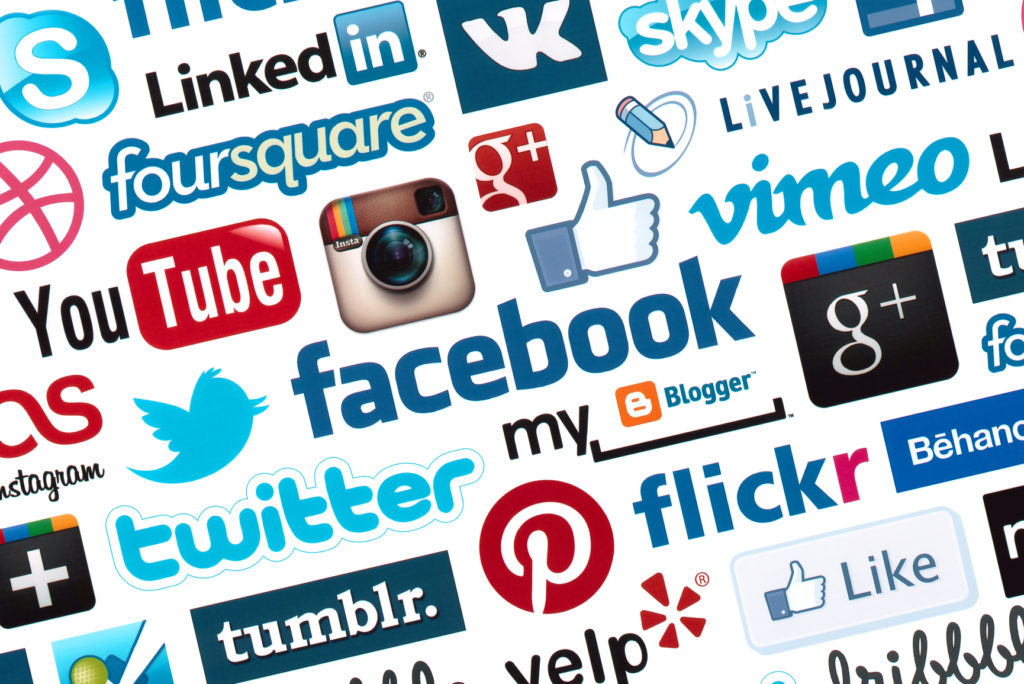
Instagram photographers, independent YouTubers and amateur fishing shows on YouTube channels, Facebook postings, Google maps and phone apps, fishing forums and specialty community websites have revealed several secret spots. Oftentimes revealing far too much information and leading to too much angling pressure and human presence that these spots can support. The negative impact to fisheries and the spot has become exponential and devastating to some that they may never recover.
Social media has negatively impacted and played a hand in exploiting fishing locations and to my dismay, already ruined some.
I have several fishing spots that were much better prior to the advent of Facebook and YouTube.
I’m sick of seeing pictures and reading stories where people brag and boast and publicize about their good fishing at places that cannot handle fishing pressure. The consequences afterwards usually haunts these anglers immediately.
Forums and discussion boards are communities of beggars. Social media sites are angling networks of freeloaders. This blog is me being who I am. The worst in my opinion are YouTubers who reveal access points and the spots they are fishing at. Ever think these locations you’re giving away might be other fishermens secret spots too?
How can we protect our secret spots? Maybe the answer is to quit posting about them, and keeping these secrets to ourselves. But we can’t do that. All fishermen are fishing for likes on social media.
Like nearly everyone who works in the fishing industry, I participate on all major social media websites in order to connect with my readership and followers. My volume of traffic isn’t high compared with most anglers, simply because I’m not prioritizing showmanship, nor whoring myself around on a daily basis. I’m also very good at not revealing my fishing spots.
My social media participation focus is on catching fish and if I catch a few, I’ll hopefully get some good photographs to document the specimen I caught. If I have time later on, maybe I’ll write about it and post the story to my websites. Then I’ll export these contents to my social media outlets so that those who read and follow me will then be able to read about my experience, and hopefully learn something. Assuming my readers are ambitious, my hope for them is to go try experience the fishing for themselves someplace on their own.
My participation in social media self-promotion, and observations of communication and interaction has led to my own conclusion on social media. I am not in favor of the current path many fishermen are taking to further their skills and discover new fishing locations. I am also not in favor how many fisheries and specific spots have been exposed to worldwide audiences. Most anglers want to gain knowledge and infringe on other people’s fishing spots the easy way. Often, their strategy is the rude way.
The methodology to gaining information isn’t what it used to be. Gone are the days of being adventurous, making personal discoveries, and finding honey holes on your own.
For instance just the other day I repelled a stalker on Instagram who staked out my fishing location, and followed me to a river access point and saw me enter the water. Within minutes of entering the water, he then did a drive-by on three separate occasions to see from the roadside how and where I was fishing. His reasoning later on in a private message was because he recognized my truck and boat from photos, and he saw my truck had sponsor decals on it. Desperate for a honey hole, he admitted to not be a creep, but must have thought I knew of a secret location he could then [I assume] infringe upon.
I didn’t catch a single fish from that spot I tried. What does it matter now. Creep.
No secret spot is safe anymore. And attempting to spot burn like the above is highly frowned upon. It is one of the unwritten rules of fishing. Everybody wants to know the exact location of your latest catch posted to Instagram and Facebook, with the promise that “your secret is safe with me” excuse. No honey-hole is safe as pictures with recognizable backgrounds and landmarks are plastered up and down many anglers profiles and newsfeeds.
I invite you to argue this subject with me. When you take into consideration the entire [licensed] angling population of the USA, fishing spots are becoming more crowded. Some is attributed to the growing popularity of sport fishing. Most is due to the rapid growth of social media and its ability to publish and provide real-time communication that’s changing the impact on our fisheries and inviting more anglers to these locations.
Social media has allowed anglers to communicate easier, and enabled us to quickly learn about locations that are producing. As fishing pressure takes its toll on these spots, anglers are compelled to move on like migrants to the next spots that might be fishing more favorably and haven’t yet been subjected to pressure and exploitation. Like many fisheries, the productivity of spots are cyclical too. Time heals damages and some recover, while others may have been ruined for good.
If you’re an attentive and observant angler, you may notice a correlation between well producing fishing spots and the amount of cars parked at the nearby access point. The same applies to the lake you’re fishing and the number of rigs at the boat landing. You may even see the trash left behind from pigs and then make attempts to restore that area to pristine condition the way it once was before being found. Trash and man’s footprints left behind are the ultimate signs that your spot is no longer a secret.
To our detriment, we’re using the power of social media and the technology of the internet as a tool to become more efficient anglers but at the same time our participation on them is backfiring on us and our fishing. It’s inviting angling pressure to more spots, God forbid any harvest happening, and helping reveal many secrets that are best never to be known.
I accept and appreciate angling pressure forcing me to fish smarter and more efficiently. But am not appreciative of spots and fisheries being ruined from social media exploitation.
Angler behavior seems to stand on it’s own as a separate issue apart from the exploitation of fishing spots from social media. Lazy anglers who just want to hop on the “bent pole pattern” will always be around. Social media has allowed this to happen easier and more effectively for them. There have always been those who go out and put in the work (God bless them!). And there have always been those who would rather just be taken by hand to the honey holes and take shortcuts……. or choose to make a stakeout, and follow me and my truck because I’m decorated with sponsor decals.
In that regard, social media makes finding fishing spots more convenient for the motivationally challenged.
We can argue and support the notion that social media platforms have created a culture of self-interest where anglers are willing to go to far greater lengths in order to show off their catches and go fishing for likes and popularity. Actions often done so carelessly, with little to no regard towards the resource that provides them their catch.
When social media is published without tactfulness, think of all the negative consequences and impact your social media participation just had on your spot. Whether it’s a honey hole or not, that location being exploited has now become your audience’s new target.
Every action has a positive or negative reaction. Don’t let a careless social media post ruin your spot.
